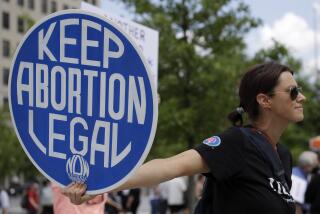The Unpopular Populist
As the streets of Caracas filled Thursday with demonstrators frustrated by barriers to recalling a president they detest, Venezuela’s ambassador to the United Nations resigned to protest human rights violations and threats to democracy in his country.
The words used by 30-year diplomat Ambassador Milos Alcalay echoed what most impartial observers of the current political drama in Venezuela have said throughout the turbulent era of President Hugo Chavez: Chavez and his apparatchiks will always find a way to place a stumbling block in Venezuela’s tortuous path toward democracy.
Venezuela is split between those who hate the ultra-populist Chavez and those who love him. Fortunately for democracy, Venezuela’s Constitution contemplates the possibility of a presidential recall election if petitioners gather enough signatures. Unfortunately, every time the opposition to Chavez collects the signatures, the electoral authorities find fault with the process.
Tuesday, the National Electoral Council disqualified hundreds of thousands of signatures in the most recent batch. Needing 2.4 million signatures, the opposition submitted a little more than 3 million. About 150,000 were flat-out rejected and only 1.8 million were deemed valid. The rest, about 1.1 million, were placed “under observation” amid allegations that they had signs of similar handwriting and a demand that the signatories come forward to confirm they signed.
Representatives from the Organization of American States and the Atlanta-based Carter Center, who observed the December signature-gathering, disagree with the council. To these experienced observers the signatures looked individual. They say no irregularities were reported during the gathering process.
Others, less diplomatic, have bluntly accused the Chavez government of pressuring electoral authorities to manipulate the rules to ensure that the required number of signatures will never be met. Three of the five members of the council were appointed by the Chavez government.
Venezuela is in deep trouble. Its economy shrank by one-fifth in the last two years; joblessness has skyrocketed. Chavez has interfered with many of Venezuela’s pro-democracy institutions: labor unions, the Catholic Church and print and broadcast media among them. He has manipulated the constitution to amass enormous personal power. The recall effort is the most robust evidence that democratic politics are still alive. Hemispheric groups should pressure Chavez and his cronies to respect the will of the people.
More to Read
Sign up for Essential California
The most important California stories and recommendations in your inbox every morning.
You may occasionally receive promotional content from the Los Angeles Times.










